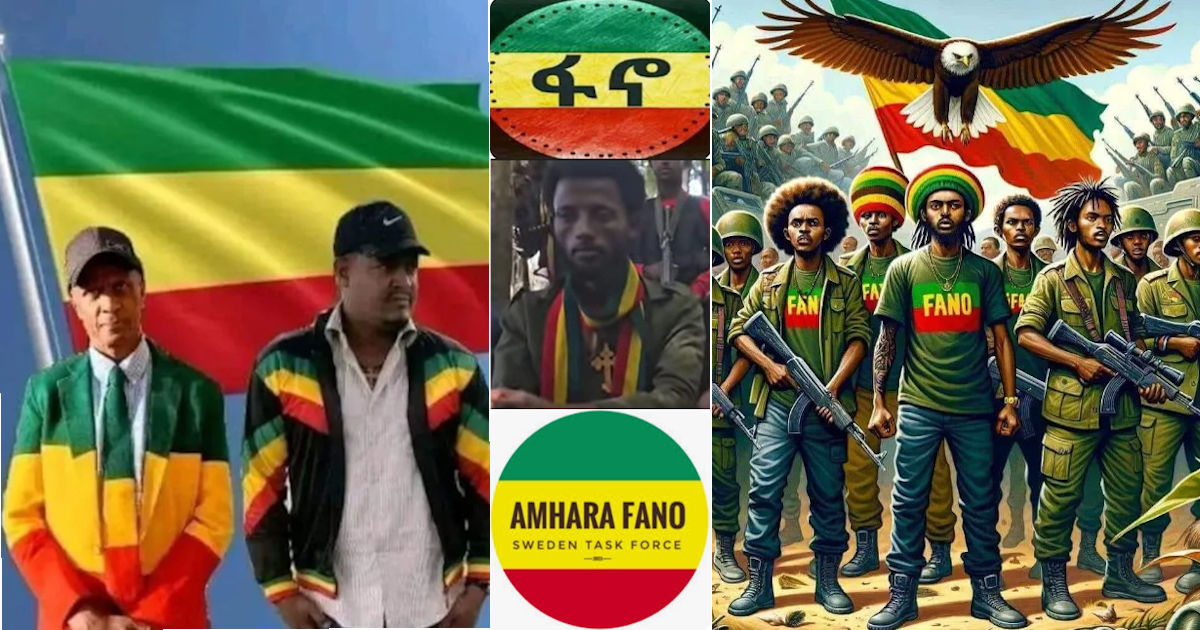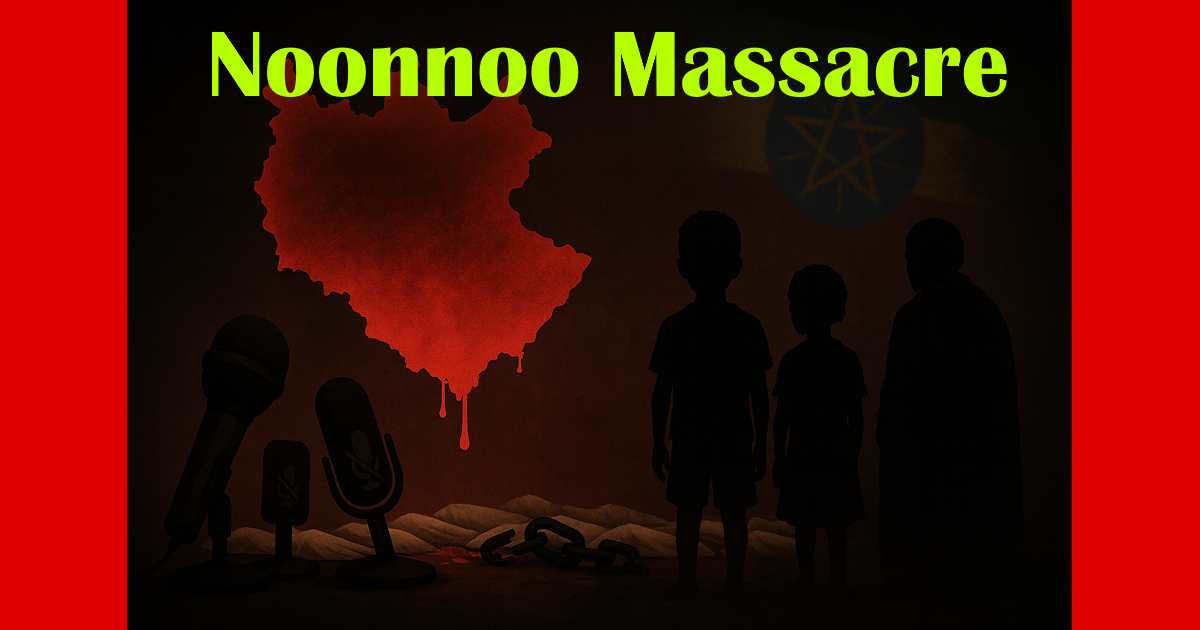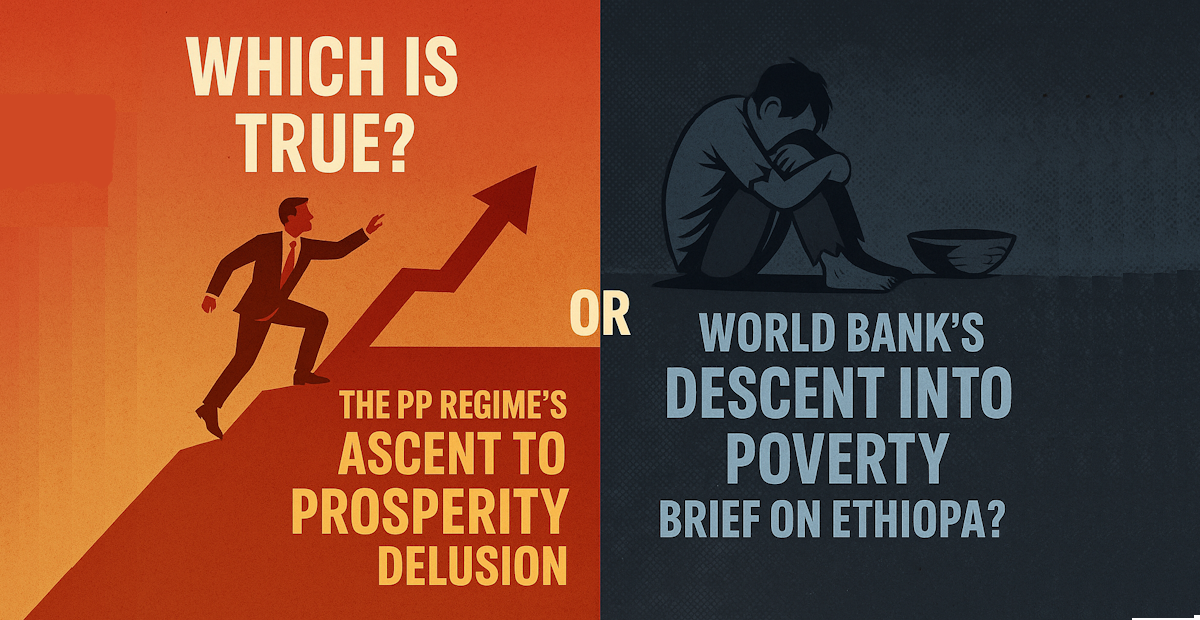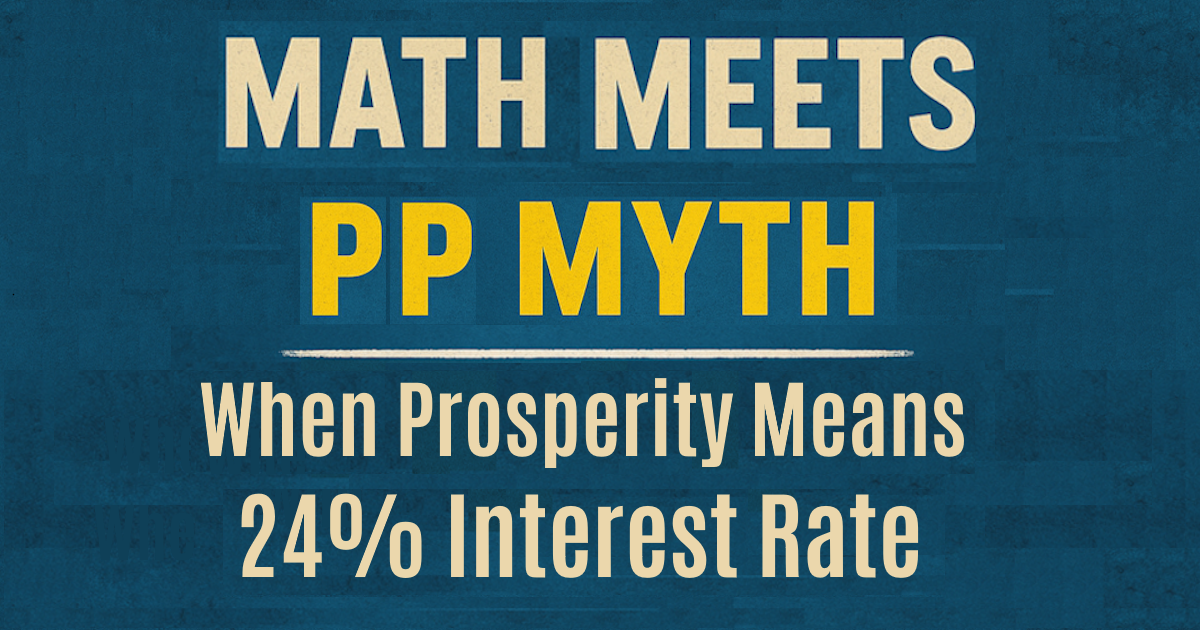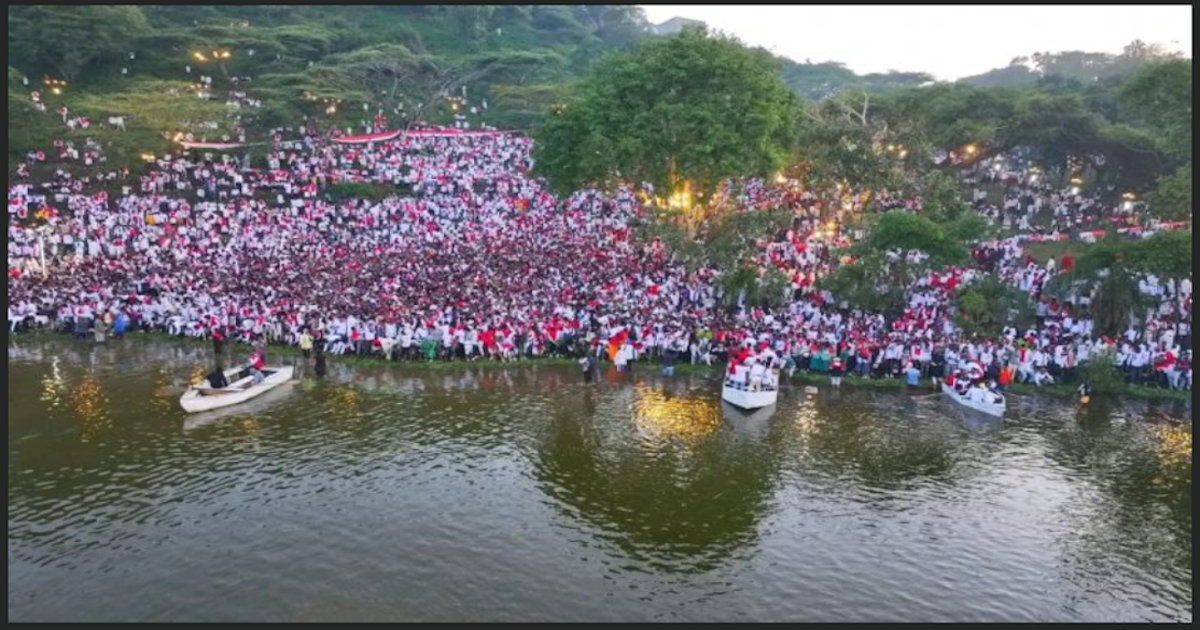An Open Letter to the Caffee Oromia: Fulfill Your Sacred Mandate

To the Body Calling Itself the Caffee Oromia — “the National Assembly of the Oromo People”
Though your mandate is disputed — secured not through free and fair election, but through the killings, imprisonment and silencing of opposition voices — you currently occupy the seats of authority.
And with that occupation, you still bear the moral and legal responsibility — for both your actions and your inactions — and for the duty you owe to the Oromo people.
As unfortunate as these circumstances are, we address you not out of recognition, but out of necessity for the sake of our people — because you sit in chairs once consecrated by the will of the people.
Our plea is not to you as individuals, but to the Sacred Office you have inherited and, through silence and complicity, disgraced.
Excerpt: An Open Letter to the Caffee Oromia
This is a plea wrapped in pain and principle. As the Oromo people endure loss, disillusionment, and unanswered sacrifices, the silence of their elected house grows louder. This letter calls on Caffee Oromia to rise — not just as an institution, but as a conscience.
To Caffee Oromia, Assembly of the Oromo People,
You have been entrusted with a solemn, non-transferable duty: to stand for the rights, dignity, and well-being of your people. When you assumed your positions, you swore an oath not to power, not to comfort, not to authority — but to the people who placed their trust in you.
And yet, day after day, event after event, tragedy after tragedy, we see little sign that you are present, aware, or responsive. We see no hearings. No urgent questions raised. No investigations launched. No defenses mounted for the defenseless.
It is as though the sacred bond between representatives and the represented has been severed — abandoned.
- Your oath demands that you stand for the rights, dignity and well-being of your people.
- Your commitment for serving your people demands that you be the voice of your people when they are subjected to incredible human sufferings daily.
- Your moral obligation demands that you raise at Caffee Oromia, the need for ending the six-year war that has been devastating the Oromo population, destruction of huge property and displacement of almost two million people in Oromia.
Therefore:
- We appeal to your conscience.
- We appeal to your oath.
- We appeal to your duty.
Foundational Illegitimacy of Domestic Military Action
Our grievances presented to you as listed below include, among many, matters surrounding forced conscription and military engagement. Before even talking about the conscription, we wish to state at the outset that the very premise on which domestic military operation is based is very troubling indeed and undoubtedly unlawful.
Hence, before we proceed to enumerate specific grievances, let us state unequivocally:
- The very premise of the current conscription is unlawful and illegitimate. The primary role of a national defense force is to protect its citizens against foreign threats, not to be weaponized against the very people it claims to serve.
- The Ethiopian National Defense Force (ENDF), as presently deployed, has been systematically used against Oromo civilians, and civilians of other regions, rather than in defense of the collective sovereignty of all nations, nationalities, and peoples.
- Thus, the ongoing forced conscription is not merely a violation of individual rights — it is a betrayal of the fundamental purpose for which a national army exists, made all the more egregious by the reported involvement of underage children, which constitutes a grave breach of international law and moral conscience.
- Most disturbingly, the recruitment of children into military service — whether by coercion or manipulation — stands as a separate and inexcusable violation that compounds the illegitimacy of the entire operation.
All the above points plead not for more violence, but for the urgency of peacemaking over warfare — and a focused commitment to swiftly outlaw what is already unlawful.
What is needed is negotiation, not the continued deployment of firepower against civilians; reconciliation, not an endless cycle of recruitment and repression.
As a representative of your people:
- What have you done to alleviate the war-torn lives of your constituents?
- What steps have you taken toward bringing peace to Oromia?
- What efforts have you made to stop the war that continues to engulf our land and scar our future?
That core foundation stated, allow us to remind you, plainly and urgently, of some of the most troubling crises demanding your immediate and fearless attention:
1. Forced Conscription and Youth Exodus: A Generation Under Siege
It is widely reported — and visually documented — that children as young as twelve are being abducted by armed militia groups for forced conscription into the military. Resistance is met with violence, and in some cases, with death. Families mourn not only lost childhoods but lost lives.
In despair, many youth are fleeing Oromia altogether, embarking on perilous journeys towards the Middle East — risking exploitation, imprisonment, or death along the way. This is a desperate flight: escaping one grave danger only to face another.
- Where is the Caffee’s voice?
- Where is the investigation?
- Where is the accountability?
2. Ethnic Segregation in Military Deployment: A Dangerous Betrayal of Ethnic Harmony
Even more alarming are credible reports that recruits are being segregated by ethnicity: Oromo conscripts are deployed to Amhara regions, while Amhara conscripts are deployed to Oromia.
This is no ordinary military assignment.
This is deliberate ethnic engineering with devastating consequences:
- First, a national army must serve all citizens equally — irrespective of ethnicity, religion, or political affiliation. Dividing soldiers along ethnic lines sabotages the very foundation of interethnic harmony.
- Second, segregating troops to avoid potential sympathies with local populations (such as Oromo recruits joining OLA or Amhara recruits joining Fano) is a confession of profound political failure — a state that no longer commands the trust of its own youth.
- Third, this policy sows permanent ethnic animosity and turns a national defense force into an agent of division and destruction.
This practice violates international norms.
The United Nations Basic Principles on the Use of Force and Firearms by Law Enforcement Officials and the International Covenant on Civil and Political Rights (ICCPR) both forbid discrimination — especially within armed state institutions.
Ethnic segregation also betrays the spirit of the Geneva Conventions, which demand impartiality and the protection of civilians in internal conflicts.
A military polarized along ethnic lines is not a defender of peace — it is a factory of future civil wars.
- Has the Caffee raised its voice against this incendiary practice?
- Or will it again fall silent as brother is turned against brother?
3. Desecration of the Dead: A Collapse of Our Humanity
The recent, horrifying spectacle of deceased Oromos paraded on the back of a donkey — in full public view — has pierced the heart of our society’s dignity. For detailed documentation please refer to this editorial [1], with the links summarized at the end.
This was not simply a logistical failure; it was a moral collapse:
- A collapse of the regional administration.
- A collapse of those responsible for the transport.
- And a collapse of the societal values that ought to bind us together in respect for the living and the dead.
To honor the dead is among the most sacred duties of any society. That such scenes occurred without apology, without outrage, without swift corrective action, is a stain on our collective conscience.
- Where was the Caffee’s official condemnation?
- Where was the demand for investigation and restitution?
- Where was the insistence that the dignity of the dead must never again be violated so shamefully?
Silence in such matters does not absolve — it indicts.
4. Draft Proclamation on Property Ownership by Foreign Nationals: A Threat to Indigenous Land Rights
The Ethiopian government’s recent introduction of a draft proclamation permitting foreign nationals to own immovable property marks a significant shift in national land policy. Historically, Ethiopia’s constitution has vested land ownership exclusively in the state and its people, with citizens granted only usufruct rights. This proposed legislation aims to stimulate foreign investment and economic growth by allowing foreigners to acquire land and property.
However, this move raises profound concerns:
Erosion of Indigenous Land Rights
Granting property ownership to foreign nationals could undermine the land rights of indigenous communities, particularly in regions like Oromia, where land is deeply tied to cultural identity and livelihood.
Risk of Displacement
Without stringent safeguards, there is a danger that local populations may be displaced to accommodate foreign-owned developments, exacerbating existing tensions and inequalities.
Lack of Transparency and Public Consultation
The rapid progression of this draft law, with minimal public discourse, raises questions about whose interests are being prioritized and whether adequate protections for citizens are being considered.
The Caffee Oromia’s proactive engagement is crucial to safeguard the rights and interests of its constituents in the face of such significant policy changes.
- What measures are being taken to ensure that this proclamation does not compromise the land rights of the Oromo people?
- How will the Caffee Oromia guarantee that any foreign property ownership does not lead to the displacement of local communities?
- Has there been a comprehensive assessment of the potential social and economic impacts of this policy on indigenous populations?
- What mechanisms are in place to ensure transparency and public participation in the decision-making process regarding this proclamation?
5. Developmental Evictions: Echoes of a Vanished People
The Abbuu Seeraa Airport Construction
Thousands of families face eviction from Abbuu Seeraa for airport expansion — an act carrying chilling echoes of the forgotten tragedy of the Boolee Eekkaa communities, displaced over six decades ago to make way for the current Boolee International airport, their culture and identity erased with their land.
For detailed documentation please refer to this [3] and this [4] editorials, the links summarized at the end.
Have we learned nothing from history?
Forced evictions without meaningful consent or adequate compensation devastate communities beyond material loss — they erase identities.
Cash compensation alone is not enough. Justice demands perpetual equity shares in the projects that displace ancestral communities — a fair, dignified share in the wealth their land will create.
This principle must also be retroactively applied to those evicted during the past expansions of Finfinnee.
- What action has the Caffee taken to protect the Abbuu Seeraa communities?
- What safeguards have been demanded to prevent repeating a historic injustice?
Development must not become a euphemism for cultural erasure.
The Gadaa Supercity Project: Development Without Dignity
Large-scale urbanization projects like the Gadaa Supercity, a.k.a. Adama-Mojo Supercity, promise progress. But progress that tramples the rights of longstanding communities is no progress at all — it is conquest by another name.
Have you, the Caffee, ensured that:
- Communities are properly consulted?
- Land rights are respected?
- Equitable benefits are guaranteed for those displaced?
- Or is the same silent consent being repeated — and with it, the same cycle of dislocation, dispossession, and despair?
6. The State of Oromia: Multifaceted Man-Made Living Hardships
We do not write this to lecture you on your mandate — that would be redundant. Rather, we raise these points to highlight the breadth and depth of the grievances your constituents live with daily:
- Security
- Cost of Living
- Corruption
- Criminality
- Unfair Taxation
- Demolitions in the name of Corridor Development
While it would be impractical to unpack each of these fully in this letter, every item listed above carries an implicit expectation: that you, the Caffee Oromia, are not only aware, but actively striving to prevent, investigate, legislate, and mitigate these crises.
Security: Ending the War and Addressing Its Root Causes
True security cannot be achieved without addressing the ongoing civil war in Oromia. The conflict’s roots lie in deep, unresolved questions of justice and self-determination — the very questions the Oromo Liberation Army (OLA) claims to champion.
We acknowledge that federal authorities play a leading role in matters of peace and war.
- But where is your voice?
- Where is your initiative to instigate, facilitate, or mediate dialogue?
- What action has the Caffee Oromia taken beyond standing behind President Shimelis Abdissa’s unreasonable demand for unconditional surrender — a posture that has only hardened positions and closed doors?
- We are now over two years past the hopeful first encounter in Zanzibar between the OLA and the federal government. What happened?
- Why has that initiative deteriorated into silence and stalemate?
- Where were you when the opportunity for peace was bleeding away?
Cost of Living: A Breadbasket Region Below the Breadline
Oromia is Ethiopia’s breadbasket — and yet millions of rural Oromos are being pushed below the breadline. The contradiction is staggering.
Farmers cannot afford agricultural inputs such as fertilizer, which are either priced beyond reach or only obtainable through bribery. In some cases, extortionate “fees” are demanded for goods meant to be subsidized — a clear illustration of how corruption directly impoverishes the people.
Worse still, land taxes are being imposed arbitrarily and unlawfully by politically connected officials, often without due process or transparency. This is not governance. It is daylight exploitation.
- What initiatives has the Caffee Oromia undertaken to address the economic hardships faced by its rural populace, particularly as impacted by corrupt practices?
- How is the Caffee ensuring that policies are in place to stabilize essential commodity prices and support farmers against exploitative practices?
Corruption: The Sale of Safety and the Auctioning of Children
Corruption is not an isolated illness in Oromia — it is a spreading infection. We won’t list every case, but one ongoing scandal demands immediate attention.
In what can only be described as an auction of human lives, families are being forced to pay bribes ranging from 20,000 to 500,000 Birr to save their children from forced conscription. Even these criminal payments offer no guarantee, as deals are struck secretly with militia members or corrupt military officers.
This is not just corruption — it is the commodification of childhood. The sale of safety.
- What is the Caffee Oromia doing to investigate and criminalize this vile trade?
Criminality: A Region Held Hostage by Its Own Keepers
Oromia has become globally associated with abductions for ransom, open extortion, and unchecked criminality. But this is no longer limited to gangs or fringe actors.
Reports now implicate members of regional militia, federal soldiers, and even ruling party officials in posing as authorities to extort money, goods, or food from local businesses and homes. The people of Oromia are not being governed — they are being looted by those sworn to protect them.
This is a state of anarchy, where corruption and criminality are no longer risks — they are rules.
- What measures has the Caffee Oromia implemented to combat the rising tide of criminal activities and ensure the safety of its citizens?
- How is the Caffee collaborating with law enforcement and community leaders to dismantle criminal networks?
Corridor Development Project: Displacement Disguised as Progress
The Corridor Development Project (CDP), initially launched in Finfinnee (Addis Ababa), has rapidly expanded across Oromia. While early phases showcased some infrastructural improvements, the broader implementation has been marred by significant human rights concerns.
Forced Evictions and Economic Disruption
In numerous towns, the expansion of corridors has led to the demolition of buildings along main roads, disrupting local economies and livelihoods. Some towns have been reduced to rubble, with no clear plans for reconstruction or adequate compensation for those displaced.
Amnesty International has called on the Ethiopian government to halt the CDP [5] in at least 58 cities until comprehensive human rights impact assessments are conducted.
Impact on Indigenous Oromo Communities
Beyond the immediate concerns of eviction and inadequate compensation, a subtler issue has emerged: displaced populations from urban centers like Finfinnee are being relocated to Oromo farmlands. This practice results in indigenous Oromos losing their ancestral lands, echoing historical patterns of displacement under the guise of development.
- What measures has the Caffee taken to ensure that the rights of indigenous Oromos are protected amid the CDP’s expansion?
- How is the Caffee addressing the issue of displaced urban populations being resettled on Oromo farmlands?
- What steps are being taken to provide adequate compensation and support for those affected by the demolitions?
7. Forced Conscription of Repatriated Returnees: A Reprehensible Breach of Protection
The recent reports surrounding the treatment of Oromo refugees returning from Djibouti and other neighboring countries are deeply troubling. Individuals who have risked everything to return home — often under compulsory repatriation — are reportedly being forced into military conscription upon arrival.
This act represents a reprehensible human rights violation on multiple levels.
Returnees are among the most vulnerable citizens — many have fled war, persecution, or economic collapse. The expectation upon their return is care, shelter, medical support, and reintegration. Instead, they are met with coercion and armed enlistment — a practice that defies international humanitarian norms and basic decency.
Forcing repatriated individuals into military service:
-
Violates international refugee protection principles, including those outlined in the UNHCR’s Voluntary Repatriation Guidelines, which emphasize safety, dignity, and sustainability.
-
Exploits vulnerability, targeting individuals who are often disoriented, undocumented, and without community defense.
-
Weaponizes return, sending a chilling signal to the diaspora that coming home means being drafted into a war they may have once fled.
Key questions for the Caffee Oromia:
- Has the Caffee launched any inquiry into the treatment of repatriated Oromos and their forced enlistment into the army?
- What measures are being taken to ensure returnees are protected, rehabilitated, and reintegrated — not weaponized?
- What systems are in place to prevent coercion of displaced persons and to uphold Oromia’s duty of care to its returning sons and daughters?
The right to come home must not be turned into a trap.
The Caffee Oromia must act swiftly and boldly — because this is not only a betrayal of citizens, but a betrayal of what it means to be a nation.
8. The War on Maize: Starving Civilians Will Not Bring Peace
Peace in Oromia will not be achieved by starving its people or destroying their means of survival.
And yet, in recent years, we have witnessed a deeply misguided security policy: the banning of maize plantation — particularly in conflict-affected zones.
This measure, reportedly aimed at denying shelter to insurgents like the Oromo Liberation Army (OLA), has instead punished civilians, not combatants. Maize fields have been razed, green stalks slashed down, and entire communities deprived of their staple crop. The absurdity is stark: the state is not just fighting insurgents — it is fighting plants, and by extension, the people who depend on them.
This is a war not on rebels, but on rural livelihoods.
It is not a tactical measure — it is a strategic blunder with devastating humanitarian consequences.
Context and Impact
This is not the first time such policies have been attempted.
Three years ago, in the Gujii zone, maize fields were destroyed on suspicion that they provided cover for OLA fighters. In western Oromia, a similar ban was tried, leading to:
- Widespread food shortages
- Poultry farms collapsing due to feed scarcity
- Market inflation and loss of income for farmers
- A deepening of poverty, frustration, and local resentment
These are not unintended consequences — they are predictable outcomes.
When the state wages war on maize, it is not weakening insurgency, it is undermining its own legitimacy.
Key Questions for the Caffee Oromia:
- What action did the Caffee Oromia take to challenge this irrational policy that criminalizes a basic food crop?
- Has the Caffee conducted any investigation into the human and economic toll of the maize ban in Gujii, West Oromia, or the Rift Valley?
- What proactive steps has the Caffee taken to ensure that future security operations do not come at the expense of food security and human dignity?
You cannot defeat rebellion by denying seeds, soil, and sustenance. What Oromia needs is not a war on maize — but a commitment to genuine negotiation, livelihood protection, and respect for the land and the people it feeds.
9. A Plea to Observe and Protect Oromo Indigenous Lands, Culture, and Rights
The Oromo indigenous lands are not simply territories — they are sacred spaces carrying the memory, spirit, and identity of a people. Biyyee (soil) is not only soil — it is culture, tradition, ancestry. It is the essence of biyya (country of nation). In Oromo philosophy, land is not a possession to be sold; it is personhood to be respected, protected, and preserved — across generations.
This truth is not only cultural — it is recognized globally. The United Nations Declaration on the Rights of Indigenous Peoples (UNDRIP), adopted in 2007, affirms the inherent rights of indigenous communities to their traditional lands, territories, and resources. It demands that states:
- Protect indigenous peoples’ rights to land, language, and cultural integrity
- Refrain from forcibly removing communities from ancestral territories without their free, prior, and informed consent
- Guarantee restitution, or just, fair, and culturally appropriate compensation when displacement occurs
This is not merely a matter of dignity — it is a matter of international law and moral obligation.
- The Caffee Oromia’s Responsibilities Under UNDRIP Must Include:
Transparent and Participatory Consultation:
Any development or investment project involving ancestral lands must involve the explicit, informed consent of the local population — not rubber-stamped paperwork. Communities must be given clear choices, voice, and veto. - Equity-Based Compensation Models:
Displaced Oromo people must not be left with one-time cash handouts. Projects built on ancestral land must offer perpetual equity shares, so that the very people whose homes and culture are uprooted also share in the long-term benefits. - Community-Centered Resettlement:
If relocation becomes absolutely necessary, it must ensure that social, cultural, and economic life is preserved. Families should not be scattered in isolation; they must be resettled with intention — maintaining collective memory, community rituals, and social bonds. - Retroactive Compensation for Historical Evictions:
Justice cannot have a statute of limitations. Oromos evicted during the early 1900s under imperial land-grabs, and their descendants, must be acknowledged and compensated.
It is time to make right the wrongs of colonial displacement masked as state-building.
We urge the Caffee Oromia to act not only as lawmakers, but as cultural stewards. To pass not only policies, but to honor a people’s soul.
History will not remember silence. But it may remember courage — if now is the time you choose to show it.
Finally, a Call to Reawaken Your Duty
The duties of a Caffee are not ornamental. They are not ceremonial. They are not optional.
They are foundational to governance:
- To scrutinize executive action.
- To amplify the cries of the voiceless.
- To uphold the dignity of the living and the dead.
- To defend the land, the heritage, and the future of your people.
If you cannot do this, you are not representatives. You are observers of your people’s suffering. And history — trust history — will judge you accordingly.
But it is not too late.
History also records when courage is rediscovered. When institutions once dismissed as irrelevant find their voice. When assemblies stand tall and say, “Enough.”
We urge you: Let the Caffee Oromia be remembered not for its silence, but for its defiance against injustice.
The Oromo people are watching. History is recording. And the future will demand answers.
Remember, it is the people you represent who pay for your relatively comfortable life — through their taxes, their trust, and their trials. You owe them not silence, but service. Not privilege, but protection. Not presence in name, but action in truth.
Galatoomaa. Thank You.
Related References
- When Even Death Commands No Dignity: Ethiopia’s Moral Decay, April 19, 2025, Editorial, OROMIA TODAY.
- Legal Path to Oromo Dispossession? The Oromo People Must Reject the Draft Property Ownership Proclamation, May 2, 2925, Editorial, OROMIA TODAY.
- Development Draped in Dispossession: The Tragedy Behind the Abbuu Seeraa Airport Deal, April 23, 2025, Editorial, OROMIA TODAY.
- The Oromo People Demand a Prerequisite for the Abbuu Seeraa Airport Project, April 27, 2025, Editorial, OROMIA TODAY.
- Ethiopia: Federal government must pause the corridor development project and end forced evictions, April 14, 2025, (Index Number: AFR 25/9098/2025), Amnesty International.
- Editorial, A Coward’s Policy in Oromia: The Maize Ban That Threatens Food Security, 15 May 2005, OROMIA TODAY.
- United Nations Declaration on the Rights of Indigenous Peoples (UNDRIP), adopted on 13 September 2007, United Nations.

